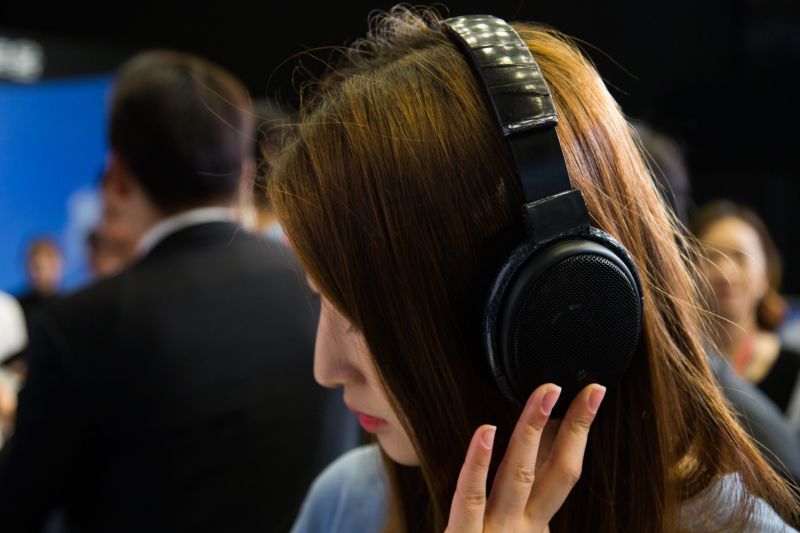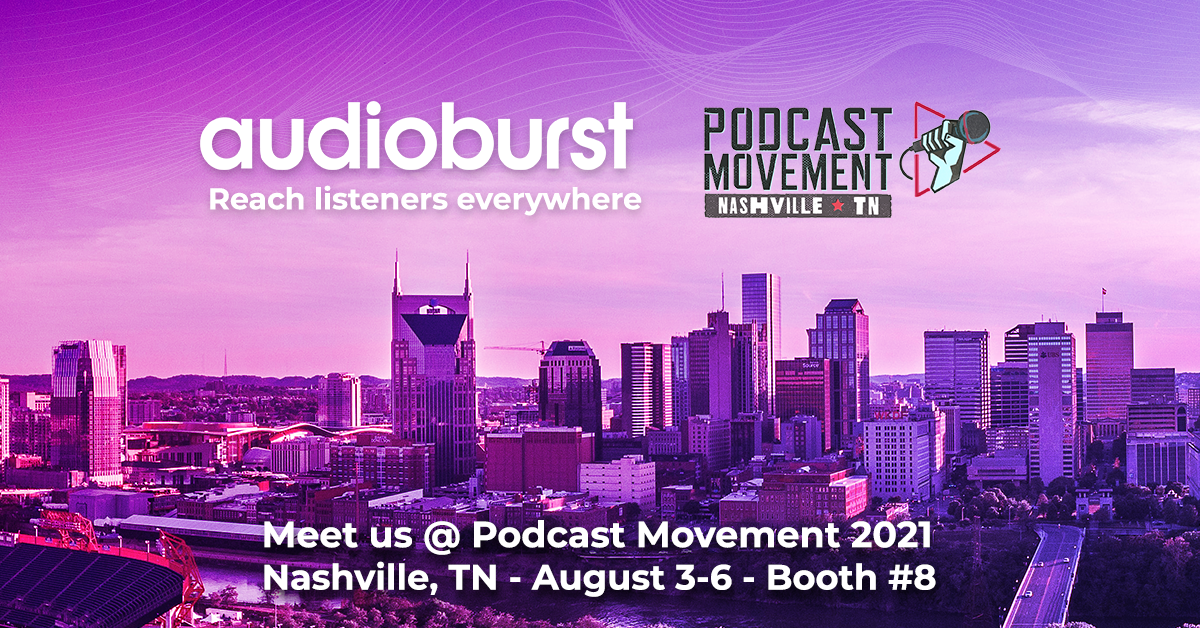- This Israeli startup navigates through millions of hours of content from the booming podcast industry
- Audioburst CEO Amir Hirsh wants to take on the two largest competitors in the smart speaker domain, Google and Amazon, and believes he is building a ‘huge empire’
Irad Atzmon Schmayer on 9.10.2018 in The Marker
Sources: https://www.themarker.com/amp/technation/.premium-1.6544259

More and more people across the world are joining the podcasting trend. Photo: UESLEI MARCELINO – Reuters
Imagine this: You open your favorite radio app, type the words ‘Benjamin Netanyahu’ or ‘Gal Gadot’ into the search field, and you instantly get every soundbite where they’re mentioned in the search results. The app is accessible on your mobile device, through your car’s infotainment system while you’re driving, and via your smart speaker at home while you’re busy with chores.
With the help of sophisticated search engines, today’s mobile devices allow us to find almost every scrap of text, video, or image on the internet in seconds – but return no results if what we’re looking for is hidden in the depths of a podcast or online radio stream. On iTunes alone, there are over 500,000 podcasts with about 18 million episodes. In the US 11,000 commercial radio stations are broadcasting at any one time, but there’s no one organizing the endless chatter.
That’s where Tel Aviv startup Audioburst comes into the picture. The company was founded in 2015 and has developed unique software that transcribes and indexes spoken-word audio into short clips, using its search engine to allow users access through third-party devices like Amazon and Google’s smart speakers.

“Podcasts are cut into individual chapters so we can supply listeners with what we think interests them the most. We provide a much shorter experience with snippets of content that are a few minutes long, instead of an entire episode that could last a whole hour,” says CEO Amir Hirsh.
If you’re planning on skipping between interviews by [Israeli radio host] Arieh Golan to his popular counterpart Razi Barkai, you’ll have to wait. Audioburst is currently available only in English and carries content from the United States and Canada. However, the company has plans to expand: “We’re currently in negotiations with a few British media companies, and we’ve begun to discuss collaborating with them.”
The company is also headed toward the Far East: In May, prominent Japanese media network Nippon Broadcasting invested $3 million in the startup and signed a partnership agreement. Since its founding three years ago, Audioburst has raised more than $14 million.

Audioburst CEO Amir Hirsh defines the company as the “anti-Google.” Photo: Eyal Toueg
How will you convert the technology to Japanese?
Hirsh: “It’s a huge challenge, but the ingenuity of our technology is that it isn’t based on the language the content is created in, but rather on acoustics, machine learning, and statistics. In order to transcribe Japanese, we’re using an automatic speech recognition engine from one of our previous investors in Japan.” Hirsh estimates, “our first commercial product will be complete within six months.”
As every podcast fan knows, the incomes of hosts and producers – who distribute their content for free – relies on advertising and endorsements, which are played during breaks in the episodes. That raises the concern that cutting podcasts into chunks could harm revenue. Hirsh rejects that claim: “We’re providing a simple platform to connect listeners with new podcasts that might interest them. If after listening for a few minutes they’ve heard enough and don’t want to subscribe to the podcast, that wouldn’t help the creator anyway.” According to Hirsh, “Audioburst shares profits with podcast creators for every snippet of audio the listener ‘tastes’.”
Like the streaming music service Spotify, Audioburst’s business model is built on two channels: A premium subscription or a ‘freemium’ model that includes advertisements. “The flagship product that we’re showing the world is our API (a software intermediary that allows two applications to talk to each other), which allows any third-party developer to create a diverse range of products based on the ability to select and stitch together audio clips,” says Hirsh. Each partner can choose which business model they want to use, he adds.

Audioburst: Our first commercial product will be complete within six months. Photo: Bloomberg
David facing two Goliaths
Since Amazon launched its Echo in 2014, smart speakers have rapidly gained in popularity within the tech world. According to a Gallup poll from March, 22% of Americans have a virtual assistant in their home. According to forecasts by Juniper data analytics, by 2022, 55% of US households will have a smart speaker.
“There’s a massive war going on globally at the moment over voice activation: Google Assistant versus Amazon’s Alexa,” says Hirsh. “They’re battling over which one will operate our household devices and which will be the next operating system. It puts enormous pressure on phone and TV manufacturers, as well as application developers who don’t want either of these two options.”
“If you’re talking to your TV and you say ‘OK Google,’ or ‘Hi Alexa,’ you’re forgetting who created it and the manufacturer’s brand is losing loyalty. So, from the automotive industry to the robotics industry and consumer technology sector, everyone’s hard at work building independent alternatives to the voice-activated operating system,” Hirsh says.
According to Hirsh: “Anyone can manufacture that system. But the unique nature of that system will come from the content. Amazon contends that users will buy consumer items using its voice-operated systems, and in that arena, they have no competition. Google is instead focusing its search capability on content, and it’s leading for now because consumers aren’t rushing to buy products through Alexa.”
The small-scale Audioburst is currently the most prominent competitor facing up against the two giant Silicon Valley corporations, Hirsh claims. “The number of Fortune 500 brands that come to visit our offices is crazy because they’re searching for a different search engine in the audio world. We are the only ones offering an alternative.” Hirsh defines the company as the “anti-Google.” He’s convinced that “it’s not every day in Israel that a startup is founded that people all over the world will be using in the future to consume content. That’s why we think this will be a huge empire.”

Seoul. Apple ushered in the golden age of podcasts. Photo: Ed Jones / AFP
The future of podcasts: Silicon Valley likes the sound
It’s fair to say that Apple ushered in the golden age of podcasts when in 2005 it added podcasts as a category in iTunes. The term podcast is a combination of iPod, (Apple’s music player) and ‘broadcast.’ Fans of the format swore that podcasts were the future of audio, but only recently have investment funds and tech giants fallen in love with the industry, and the money has started to flow.
Last year podcast production company Gimlet raised $20 million and podcast app Castbox swept up more than $25 million between June 2017 and April 2018. Anchor, which allows podcast recording and editing directly from mobile devices, also raised a respectable sum last year: $12 million.
Even Google decided to dive into the world of podcasts, albeit belatedly, when in June it launched its own dedicated podcast-listening app. Last week the search giant announced its intention to join forces with podcast distributor PRX. The two investors will fund and advise 12 new podcasters in order to, in their words, ‘increase diversity.’
Why did the large investments only begin to flow recently? First, the underground nature of podcasts, most of which operate independently and are marketed by “word of mouth,” Secondly, only recently have podcast producers begun to measure the scale of their content distribution. Last December Apple gave podcast creators tools to analyze listening habits and advertising placement. So only after investors were exposed to new information and data analysis did they begin to believe that specific podcasts could be promising – and capable of bearing fruit in a similar manner to innovative startups.



